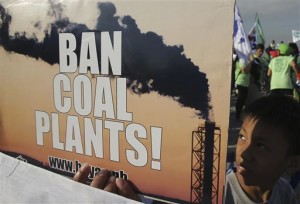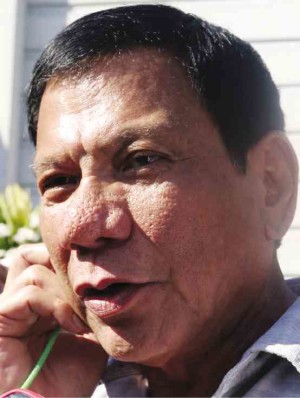Unnamed envoy blamed for Duterte’s statement on climate change pact
MANILA — President Duterte’s statement on his refusal to honor the Paris Agreement on climate change could have been a reaction to an improper question from an ambassador, according to Mary Ann Lucille Sering, a former vice chair of the Climate Change Commission.
Sering, who expressed hope the Philippines would not pull out of the Paris agreement, said Mr. Duterte might have been irked when the ambassador— still unnamed— asked him about the Philippines maintaining a certain level of carbon emissions, as that amounted to an imposition.
“In a diplomatic perspective, you don’t ask that question because that’s an imposition on us. It’s a diplomatic faux pas to even ask that question,” Sering said in a phone interview.
The Philippines’ commitment to reducing carbon emissions was conditioned on support from the international community, she said.
“What we said was we can’t reduce unless we’re supported,” she said.
“In short, if you don’t give us any support, we will continue our sustainable development, our economic development that may rely still on dirty but cheap [energy]. But if you want us to use clean, make those energy sources cheaper,” she added.
The Philippines would refuse to be compelled to reduce emissions and then be made to pay alone for the high cost of renewable energy, she said.
Sering expressed hope the Philippines would continue to support the historic Paris agreement.
It is not just about reducing emissions, but also about climate change adaptation, according to Sering.
She also noted that the Philippines took a leadership role in the talks, especially with regard to call to limit the increase in temperature to 1.5 C above pre-industrial levels.
If the Philippines would not ratify the agreement, she said it would not restrict the Philippines’ actions, but the country’s credibility might be affected.
“We might lose out on grants. That is free money. It’s not a loan. It will impact solar investments,” she said.
But Sering also said that even before the Paris agreement was signed, the Philippines had put in place policies geared toward addressing climate change. SFM

A Filipino boy passes by a slogan during a rally in Manila, Philippines on Sunday, Dec. 13, 2015 to criticize the agreement reached during the United Nations conference on climate change, Conference of Parties 21 (COP21) in Paris. Nearly 200 nations adopted the first global pact to fight climate change on Saturday, calling on the world to collectively cut and then eliminate greenhouse gas pollution but imposing no sanctions on countries that don’t. (AP Photo/Aaron Favila)
RELATED VIDEO

